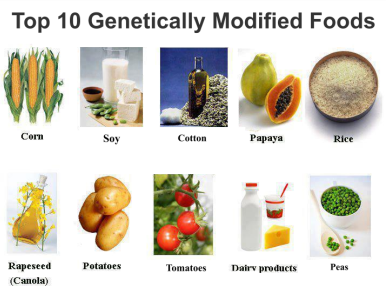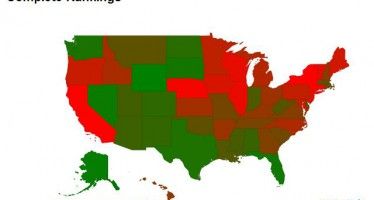Anti-GMO group can’t get labeling bill introduced
 The perception that California is a world leader in far-reaching environmental laws has never been true when it comes to GMOs — genetically modified organisms, usually crops that have been altered and the food products they end up in.
The perception that California is a world leader in far-reaching environmental laws has never been true when it comes to GMOs — genetically modified organisms, usually crops that have been altered and the food products they end up in.
The European Union has had bans and various restrictions on genetically modified crops and foods for decades. But efforts to limit or more heavily regulate GMO foods in California have failed at the Legislature. And in 2012, voters rejected Proposition 37, which would have required the labeling of GMO foods.
This year, the Label GMOs organization couldn’t even find a legislative sponsor for a bill that would require the labeling of GMO food products by the Feb. 27 deadline for introduction of legislation. One of the group’s state directors told me that there was optimism a sponsor could be found in 2016.
However, that may be tough if state lawmakers understand they’re taking on what amounts to conventional wisdom among the scientific community. A Pew survey of scientists released in late January found that 88 percent believe genetically modified foods are safe. Vox explains why:
At this point, billions of people around the world have been eating GM foods for decades without any noticeable ill effects. And numerous scientific studies have concluded that the GM crops currently on the market pose no more of a health risk than conventional crops.
Europe’s anti-GMO consensus is no more
Further evidence that the anti-GMO movement has crested can be found in Europe. This is from The Economist in January:
Europe has long been defiantly GM-free. The Americas and most of Asia grows the stuff without fuss. But crops whose genes have been modified in some way may not (with a few exceptions) be grown in the European Union. Until now. On January 13th the European Parliament lifted the EU-wide ban, instead allowing national governments to impose their own restrictions. The plan has already been approved by governments, so the change should come into force this spring.
It will still not be a breakthrough for GMOs, as most European governments remain firmly against them. In the past, they would not (in theory) have been able to stop GM crops being grown on their soil if the EU approved them — and the EU was supposed to consider scientific evidence in its ruling. Now governments will be free to impose national bans for almost any reason.
Eight GM modified crops await EU approval but only one variety of maize (corn) has been grown commercially. Some countries may now allow more. These include Britain, which does a lot of plant science, and Spain, which has over 130,000 hectares of GM maize. In the rest of the world GM crops are spreading and GM vegetables are appearing. America has approved a new modified potato. Europeans may soon learn what the lack of fuss is all about.
Chris Reed
Chris Reed is a regular contributor to Cal Watchdog. Reed is an editorial writer for U-T San Diego. Before joining the U-T in July 2005, he was the opinion-page columns editor and wrote the featured weekly Unspin column for The Orange County Register. Reed was on the national board of the Association of Opinion Page Editors from 2003-2005. From 2000 to 2005, Reed made more than 100 appearances as a featured news analyst on Los Angeles-area National Public Radio affiliate KPCC-FM. From 1990 to 1998, Reed was an editor, metro columnist and film critic at the Inland Valley Daily Bulletin in Ontario. Reed has a political science degree from the University of Hawaii (Hilo campus), where he edited the student newspaper, the Vulcan News, his senior year. He is on Twitter: @chrisreed99.
Related Articles
Fracking watch: Brazil figures out what CA hasn’t
May 1, 2013 By Chris Reed The passage of anti-fracking legislation by an Assembly committee Monday could lead to a
Redevelopment Partners In Slime
Katy Grimes: Trying to fill the thrice-vacant City Manager position, Sacramento’s City Council made a job offer to a candidate
CA suffers 2nd highest taxes; 2X liberal Wash State
A new study by WalletHub.com found California suffers the second highest state and local taxes of any state, after only




